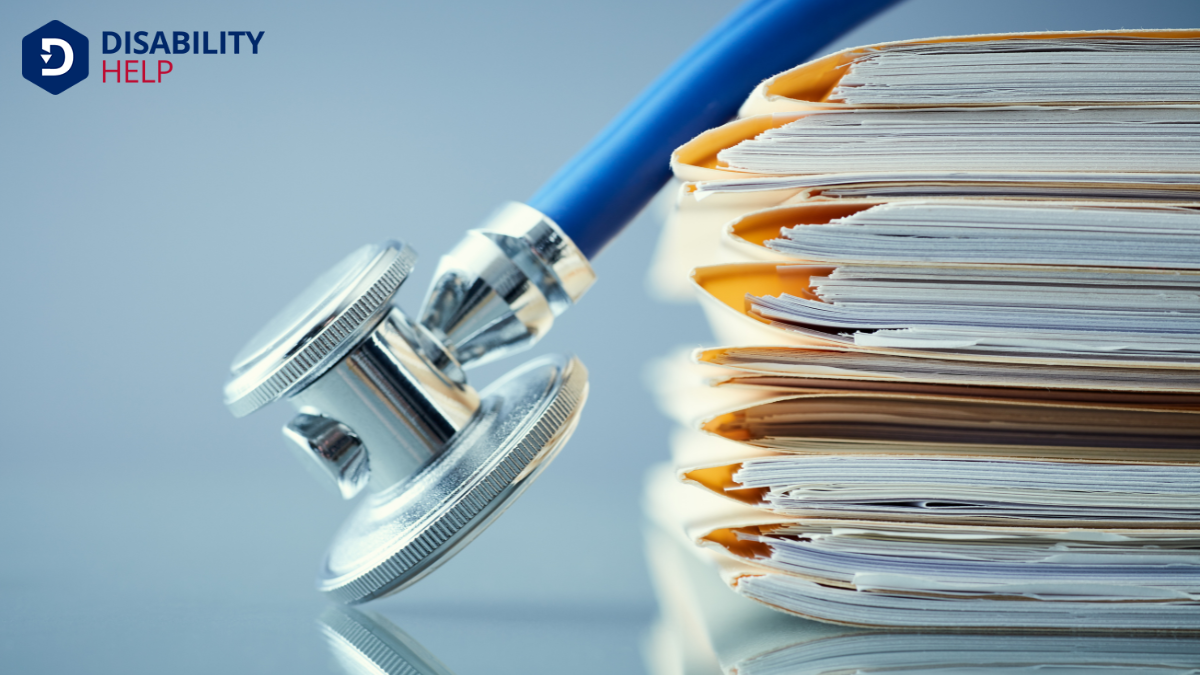When preparing for a disability exam, it's crucial to organize your medical history meticulously and articulate your symptoms clearly. Imagine the exam as an opportunity to convey the daily impact of your condition. Don't downplay your discomfort—be honest and precise. Understanding the process and having your documents in order can greatly increase your chances of success. So, how do you ascertain you're fully prepared for what's ahead?
Key Takeaways
- Organize medical documents chronologically and include detailed descriptions of conditions and treatments.
- Provide accurate, consistent, and up-to-date documentation to support your disability claim.
- Be honest and clear when discussing symptoms and their impact on daily life during the exam.
- Maintain open communication with healthcare providers and use their recommendations for exam preparation.
- Consider consulting disability attorneys or advocacyThe act of arguing in favor of, supporting, or defending the rights and interests of individuals or ... organizations for legal assistance and support.
Understanding Disability Exam Requirements
When you're preparing for a disability exam, understanding the specific requirements is vital to success. You need to familiarize yourself with the criteria that determine eligibility. Start by reviewing the guidelines provided by the relevant authority, as these outline what’s expected from you.
Pay attention to the conditions and symptoms that are considered and make certain you’re prepared to discuss them clearly. Understanding these requirements helps you focus on the most important aspects during your exam.
Additionally, knowing the documentation and evidence needed plays an important role. Make sure you comprehend the key details that support your case.
Being well-informed allows you to effectively communicate your situation, guaranteeing the examiner can assess your condition accurately. Remember, clarity and precision in understanding these requirements can greatly impact your outcome.
Gathering Comprehensive Medical Records

To pass a disability exam, you need to gather thorough medical records that highlight your medical history and current condition.
Organize these documents neatly to guarantee you don't miss anything essential.
Also, make certain your health history is up to date so examiners have the full picture of your situation.
Medical Records Importance
Thorough medical records are essential in passing a disability exam. They provide a clear picture of your health history and current condition, which helps examiners understand your needs. When you gather extensive records, you’re showing evidence of your medical journey. This includes doctor visits, treatments, and any ongoing conditions.
By having detailed records, you’re making it easier for examiners to assess your situation accurately. Your medical records should include information from all relevant healthcare providers. This means including records from specialists, therapists, and any other professionals involved in your care.
The more detailed and complete your records are, the better they reflect the reality of your health issues. Remember, these documents are your voice in the evaluation process, so make sure they’re thorough and accurate.
Organizing Medical Documents
Having detailed medical records is only part of the equation; organizing them effectively is just as important.
Start by categorizing your documents chronologically and by the type of treatment or condition. Use folders or digital files, whichever you're more comfortable with, to keep everything neat. Label each section clearly, so you can quickly find what you need.
If you have a lot of documents, consider creating a summary page listing key information like doctor's names, contact details, and dates of major treatments or diagnoses. This summary provides a quick reference and helps others understand your medical history at a glance.
Updating Health History
Keeping your health history up-to-date is essential when preparing for a disability exam. You’ll need a clear and thorough record of your medical conditions and treatments.
Start by gathering all relevant medical records, which will help your examiner understand your situation fully. Here’s how:
- Collect Recent Reports: Obtain the latest medical reports, including doctors’ notes, test results, and imaging studies. These documents provide current insights into your health status.
- Summarize Past Treatments: List all past treatments, surgeries, and therapies. Include dates and outcomes to showcase the progression or resolution of conditions.
- Note Medication History: Record every medication you’re taking or have taken, along with dosages and durations. This information highlights the ongoing management of your health issues.
Being organized guarantees you’re well-prepared for your exam.
Preparing Personal Statements and Testimonies
Crafting personal statements and testimonies can be an intimidating task, but why make it harder than it needs to be? Focus on clarity and honesty. Start by listing how your condition affects your daily life. Think about specific examples that highlight challenges you face, whether it's difficulty performing tasks, or emotional struggles. Use concrete language and avoid vague descriptions.
Write in your own words. It’s your story, so let your voice shine through. Keep it concise, yet thorough. Remember, the goal is to paint a clear picture for whoever reads it.
Practice makes perfect, so revise and refine. Ask someone you trust to review it for feedback. Ultimately, your personal statement should authentically represent your experiences and needs.
Coordinating With Healthcare Providers
To effectively coordinate with your healthcare providers, start by scheduling timely appointments to guarantee your medical needs are up-to-date.
Share your complete medical history with them, so they're fully informed and can provide the necessary documentation.
Don’t hesitate to discuss your upcoming disability exam and any preparation they recommend.
Schedule Timely Appointments
While maneuvering the process of passing a disability exam, coordinating with healthcare providers to schedule timely appointments is essential.
Start by being proactive and organized. Here’s how you can do it:
- Call Early: Contact your provider as soon as you receive information about the exam. This guarantees you secure a slot that fits your timeline.
- Follow Up: After scheduling, keep a record of your appointment details. Set reminders a week and a day before the appointment. This way, you won’t miss a critical date.
- Be Flexible: Sometimes, you might need to adjust your schedule to accommodate last-minute changes. Being open to rescheduling helps maintain your timeline.
Share Medical History
When preparing for a disability exam, sharing your complete medical history with healthcare providers is vital for an accurate assessment. Make certain your records are up-to-date and include all relevant conditions, medications, treatments, and surgeries. This information helps them understand your needs and challenges.
Don’t hesitate to discuss any changes in your health or new symptoms since your last visit. Communicate openly and provide copies of any recent medical tests or specialist reports. This guarantees they've a thorough view of your situation.
If you’ve seen multiple doctors, coordinate their reports to present a cohesive picture. Remember, clear communication with your healthcare providers not only supports your case but also fosters a trusting relationship, significant for your overall well-being.
Discuss Exam Preparation
Although preparing for a disability exam can seem intimidating, collaborating closely with your healthcare providers is essential for success. Start by having open conversations with your doctors about your symptoms and how they affect your daily life. They can offer valuable insights and guidance.
To guarantee a smooth process, follow these steps:
- Schedule Appointments: Book visits with your healthcare providers well in advance. Discuss any recent changes in your condition and verify your medical records are up-to-date.
- Gather Documentation: Collect all necessary documents, including test results and treatment plans. Your providers can help confirm that everything is thorough.
- Seek Clarification: If you're unsure about any part of your condition or the exam process, don't hesitate to ask questions. Your doctors are there to help you understand and prepare effectively.
Knowing What to Expect During the Exam

What can you expect during a disability exam? First, the examiner will review your medical history and any related documents. They'll likely ask questions about your symptoms, treatments, and overall health. It's important to be honest and clear when answering.
The physical exam will depend on your condition, but it typically includes checking your mobility, strength, and range of motion. During the exam, the examiner might also observe how you perform simple tasks.
Don’t worry if you can’t do something; they’re evaluating your limitations, not your effort. Remember, it’s okay to express discomfort or pain. This information helps the examiner understand your condition and how it affects you.
Highlighting the Impact on Daily Activities
Daily routines can reveal much about your disability's impact on life. When describing how your condition affects you, focus on everyday tasks. This helps the examiner understand your challenges clearly.
For instance, think about your morning routine:
- Getting out of bed: Do you need extra time or assistance? Does pain or stiffness make it difficult?
- Personal hygiene: Are tasks like brushing teeth or showering challenging due to limited mobility or fatigue?
- Preparing meals: Can you stand long enough to cook, or do you struggle with lifting items?
Painting a vivid picture of these daily struggles highlights the genuine impact of your disability.
Avoiding Common Mistakes in Documentation
When preparing for your disability exam, make sure your medical history is accurate and up-to-date to prevent any discrepancies.
Consistency in symptom reporting is essential, as conflicting information can raise red flags.
Don't forget to submit all necessary evidence, as missing documents can delay or even jeopardize your claim.
Accurate Medical History
Documenting your medical history accurately is essential for passing a disability exam. You need to guarantee all details are precise and complete. Here’s how to avoid common mistakes:
- Chronological Order: Start from the beginning. List your conditions and treatments in order. This helps the examiner see the progression and patterns over time.
- Specific Dates: Be specific about dates. Using exact dates for diagnoses, treatments, and doctor visits strengthens your case and avoids confusion.
- Detailed Descriptions: Describe your conditions clearly. Include symptoms, treatments, and outcomes. Vague descriptions can lead to misunderstandings.
Consistent Symptom Reporting
Having an accurate medical history sets the stage for the next key aspect of your disability exam: consistent symptom reporting.
It's vital to describe your symptoms clearly and consistently each time you meet with a healthcare professional. Make sure you're using the same terms and descriptions throughout your documentation. This consistency helps examiners understand the persistent nature of your condition and prevents misunderstandings.
Avoid exaggerating or downplaying symptoms; honesty is key. Keep a daily symptom diary to track your experiences, noting any patterns or triggers. Bringing this to appointments can help you remember details accurately.
Don't hesitate to ask your doctor for clarification if you're uncertain about medical terminology. Consistent reporting builds credibility and strengthens your disability claim.
Proper Evidence Submission
Submitting proper evidence is essential for a successful disability claim. Avoid common mistakes in documentation by making certain your evidence is detailed and aligned with your medical condition. Here’s how to avoid pitfalls:
- Collect Extensive Medical Records: Gather all your medical records, including test results and doctors’ notes. Make certain they cover your condition's duration and severity.
- Make Certain Consistency: Your medical documents should consistently reflect your symptoms and limitations. Discrepancies can lead to doubts about your claim’s validity, so review them carefully.
- Update Regularly: Keep your records current. Submit recent documents that demonstrate ongoing challenges and any recent treatments or evaluations.
Communicating Effectively With Examiners

When you’re attending a disability exam, effectively communicating with examiners is essential to ensuring your condition is accurately understood and assessed.
Start by preparing a clear, concise explanation of your symptoms. Be honest and specific about how they impact your daily life. Avoid exaggerating or downplaying your condition.
It's helpful to practice describing your symptoms beforehand, focusing on key points. Don’t hesitate to ask for clarification if you don't understand a question. This shows you're engaged and enthusiastic for an accurate evaluation.
Maintaining eye contact and speaking clearly can enhance your credibility. Remember, examiners are there to assess your condition, so being open and cooperative can facilitate a better understanding, leading to a fairer assessment of your disability.
Utilizing Legal and Advocacy Resources
After effectively communicating your symptoms to examiners, tapping into legal and advocacy resources can further strengthen your position. Steering through disability exams can be intimidating, but you're not alone. Here’s how to utilize these resources:
- Legal Assistance: Reach out to disability attorneys. They understand legal nuances and can advocate on your behalf, ensuring your rights are protected.
- Advocacy Organizations: Connect with organizations specializing in disability support. They offer guidance and can help amplify your voice during the exam process.
- Peer Support GroupsGroups where individuals with similar disabilities come together to share experiences, provide emoti...: Engage with others who’ve been through similar experiences. They can provide valuable insights and emotional support.
Planning for Follow-Up and Next Steps
To guarantee you're prepared for what comes next, it's crucial to map out your follow-up and subsequent steps after the disability exam.
Begin by noting any instructions or advice the examiner provides. Keep track of important dates, such as when you might expect to receive the results. If you're uncertain about any part of the process, don't hesitate to ask questions or seek clarification.
Stay proactive by contacting the agencyThe capacity of individuals with disabilities to act independently and make their own choices. or office handling your case to confirm they've all the necessary documents. If there are delays, be persistent and follow up regularly.
Prepare for potential outcomes by researching what actions to take if your claim is denied. Knowing your next steps will empower you and help you navigate this critical process smoothly.
Conclusion
You've got this! By organizing your medical records and preparing clear personal statements, you’ll present a strong case. Work closely with your healthcare providers, and don’t hesitate to use legal resources if needed. Communicate openly during the exam, expressing your symptoms and their impact on your life. Avoid common documentation mistakes by staying thorough and honest. With careful preparation and effective communication, you’ll be well-equipped to navigate the disability exam successfully. Good luck!






